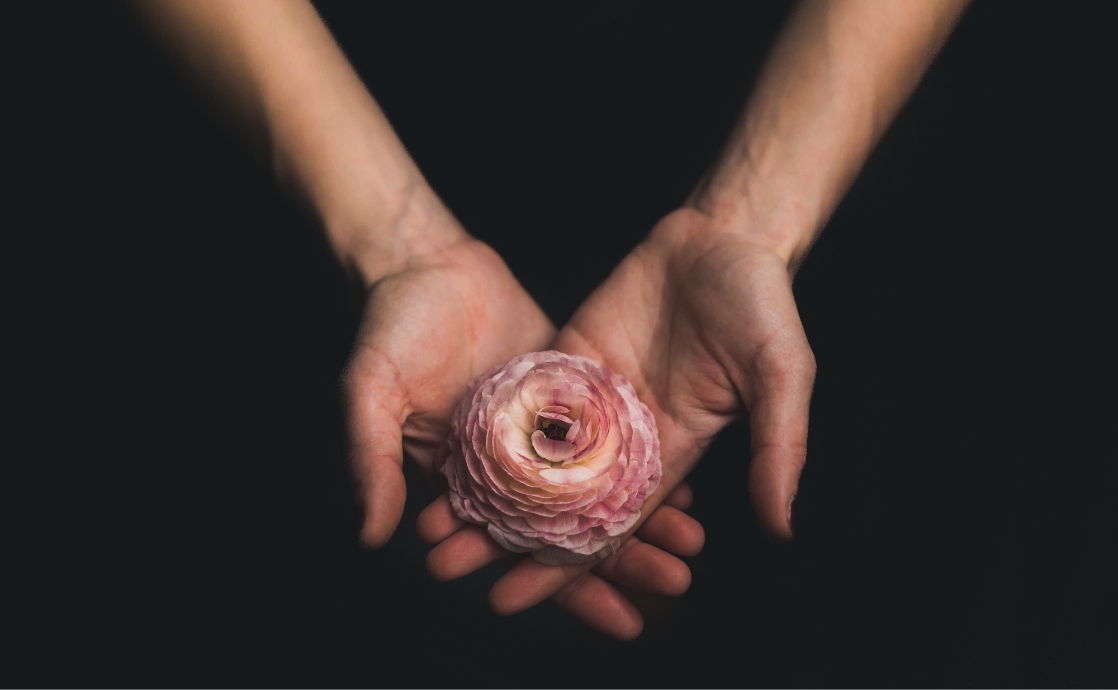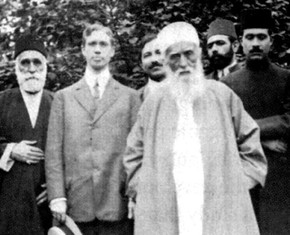The views expressed in our content reflect individual perspectives and do not represent the authoritative views of the Baha'i Faith.
When we examine life in nature and compare it with a prophet’s journey on this planet, we find they have at least one thing in common: sacrifice plays a major part in their destinies.
What is sacrifice? The dictionary defines it as the “surrender or destruction of something prized or desirable for the sake of something considered as having a higher or more pressing claim.”
In nature, sacrifice plays a critical role in maintaining the cycle of life on Earth. Without it, our planet would become barren as Mars. In fact, nature itself is inherently sacrificial – the mineral gives up its identity to become assimilated into the nature of the plant; the plant sacrifices itself for the higher existence of animals and humans, in a never-ending cycle of sustaining life.
RELATED: How Sacrifice Creates Nobility
In the animal kingdom, some species prey on others for their survival. Nature nourishes itself through this circle of sacrifice, maintaining a hierarchy in which lower forms of existence give up their identity and their very lives to benefit higher forms. Any change in this hierarchy would disturb the balance of nature. For example, certain birds need insects, seeds, and worms to live. If these food sources disappear, the birds that rely upon them would quickly become extinct.
As the Baha’i teachings point out in this excerpt from the writings of Abdu’l-Baha, all the creatures living on Earth are interconnected in complex ways through this principle of sacrifice:
Reflect upon the inner realities of the universe, the secret wisdoms involved, the enigmas, the inter-relationships, the rules that govern all. For every part of the universe is connected with every other part by ties that are very powerful and admit of no imbalance, nor any slackening whatever. In the physical realm of creation, all things are eaters and eaten: the plant drinketh in the mineral, the animal doth crop and swallow down the plant, man doth feed upon the animal, and the mineral devoureth the body of man. Physical bodies are transferred past one barrier after another, from one life to another, and all things are subject to transformation and change, save only the essence of existence itself – since it is constant and immutable, and upon it is founded the life of every species and kind, of every contingent reality throughout the whole of creation.
In our human lives, sacrifice takes several forms. People may make sacrifices for humanitarian purposes by donating money or time to charitable or service organizations, or they may do without things they want in order to help their children or other family members. Offering something of value to the Divine powers can be a way of showing devotion, thankfulness, or commitment. Many consider sacrifice of time or material things as a form of worship.
Self-Sacrifice
Sacrificing material wealth or time can be a noble pursuit, but of greater import is self-sacrifice, which provides a gateway to the Kingdom of God. Let’s look at a few forms of this noble act.
Consider parenting, for example. Raising a child from infancy to maturity is no easy task, requiring unconditional love as well as considerable care, courage, patience, and other virtues. Responsible parents set aside their own wishes and desires to build strong families. Their primary hope for is the well-being of their children. They undertake this sacrifice without hope for reward, financial or otherwise. Though parenting is neither glamorous nor usually highly-lauded, the Creator considers it a highly meritorious act, according to the Baha’i teachings:
Among the greatest of all services that can possibly be rendered by man to Almighty God is the education and training of children … so that these children, fostered by grace in the way of salvation, growing like pearls of divine bounty in the shell of education, will one day bejewel the crown of abiding glory.
RELATED: Do All the Prophets Sacrifice for Our Redemption?
In fact, a prosperous world civilization depends upon good parenting, and good parenting requires sacrifice. There is a paradox in this kind of sacrifice. Giving often means pain, which our animal side instinctively avoids. Yet there is a sweet taste to this bitter experience.
In just one recent example, a four year-old boy named Jason Mackintosh was diagnosed with bone cancer, and doctors gave him only six months to live. His parents were determined to find a cure for his illness at any cost. Eventually they lost their home and accumulated a mountain of debt. Jason’s mother had to quit her job, and both parents agonized over their son’s destiny, but they never gave up.
When Jason passed away after 11 months, the mother said, “For Jason, we would do it all over again” as she wiped away the tears rolling down her cheeks. “Maybe more. A million times over.”
For the love of their child, the sacrifice of these parents knew no bounds. I think the same is true of anyone who has begun to give up the self for any higher cause. If done for God, the taste of sacrifice is even sweeter.
















Comments
Sign in or create an account
Continue with Googleor